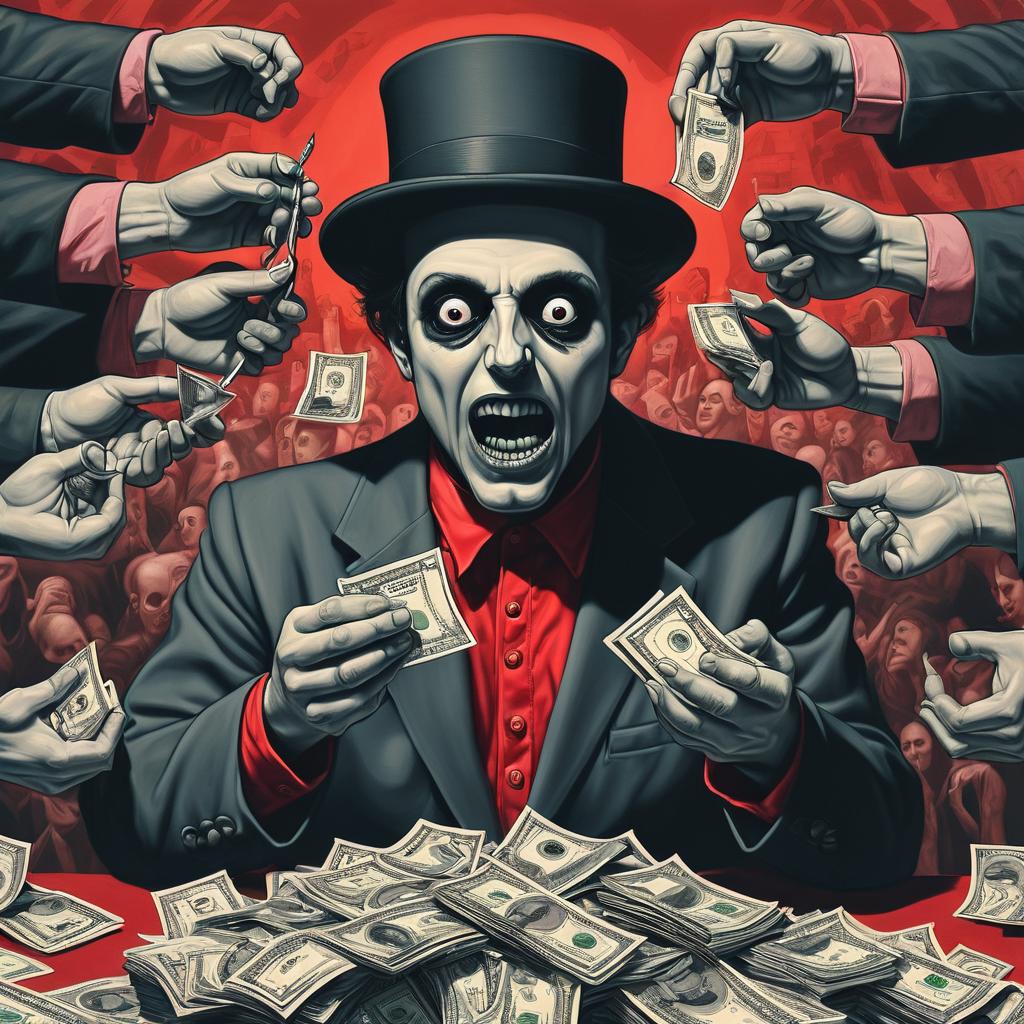Ever noticed that some of the most popular artists in this era are sickly stereotypical replicas of their idols? How some artists paint by numbers until they have cloned the sound that inspired them yet failed to replicate the same authenticity that resonated deeply with their fans? It’s the Greta Van Fleet effect, rippling throughout the music industry, highlighting how the abundance of talented musicians contrasts sharply with the scarcity of artists creating original and emotionally impactful music.
This trend is exacerbated by the pressures of the music industry, which frequently prioritises marketability and familiarity over innovation. The result is a proliferation of technically proficient music that lacks the raw, emotional core that resonates deeply with listeners.
Homogenisation of sound, where originality is sacrificed for the safety of well-worn formulas, has marked an era of cultural stagnation. An era in which artists are averse to risks and allured by the idea that they can be propelled to their idols’ greatness while forgoing unfiltered authenticity that viscerally speaks to the human experience.
This article will explore how we arrived in an epoch of undaring banal cultural stagnation, look at the phenomenon through a Marxist lens and discuss the implausibility of a new sonic movement capable of re-revolutionising the music industry away from the aural oligarchs.
How Did Creativity Start to Stagnate?
The current era of cultural stagnation in music, particularly characterised by nostalgia-inclined tendencies, can be traced back to several interrelated factors. Firstly, the digital revolution fundamentally changed how music is produced, distributed, and consumed. The ease of accessing vast musical archives has led to a pervasive recycling of past styles. Streaming platforms, with their algorithms favouring familiar sounds and well-known hits, have further entrenched this reliance on nostalgia, often at the expense of innovation.
Economic pressures also play a significant role. The high cost of living and the financial demands of producing and marketing music have led artists to prioritise safe, commercially viable choices. Record labels, driven by profit margins, are more likely to invest in projects that evoke proven successes rather than risky, groundbreaking ventures. This economic landscape discourages experimentation and favours replication of popular genres from previous decades.
Moreover, the cultural and societal context contributes to this phenomenon. In times of uncertainty and rapid change, there is a collective longing for the perceived stability and simplicity of the past. This sentiment is mirrored in the music industry’s inclination towards nostalgia. Audiences find comfort in the familiar sounds of earlier eras, and artists, in turn, cater to this demand by drawing heavily on past influences.
Social media and the internet have amplified these trends. With a constant barrage of content, artists often feel pressured to conform to established trends to maintain visibility and relevance. This environment fosters imitation rather than innovation, leading to a saturation of music that pays homage to past styles without pushing creative boundaries.
A Marxist View on How Capitalism & Cultural Stagnation
Karl Marx’s perspective on cultural stagnation is intrinsically linked to his broader critique of capitalism. Marx posited that the economic base of society—comprising the means and relations of production—shapes the superstructure, which includes culture, politics, and ideology.
Marx believed that under capitalism, the ruling class controls the means of production and, consequently, the cultural narrative. This domination results in cultural stagnation, where prevailing ideas and cultural norms serve to perpetuate the status quo, ensuring the continued dominance of the upper and ruling classes.
Marx also argued that this stagnation is characterised by a lack of innovation and progress, as the cultural superstructure becomes a tool for maintaining existing power dynamics rather than fostering genuine intellectual and artistic growth.
Stagnation in this vein can only be overcome through revolutionary change which liberates cultural production from the constraints of capitalist exploitation, allowing for a dynamic and evolving cultural landscape that reflects the true interests and creativity of the masses, rather than the narrow interests of a privileged few.
Can Creativity Be Reclaimed from Capitalism in the 21st Century?
The insurgence of punk and hip-hop in the 70s proved the status quo can be challenged. The 1990s indie and grunge movements further demonstrated the potential for music to break free from capitalist constraints, with bands often thriving on minimal resources, finding creative havens in squats or communes. However, the contemporary landscape poses significant challenges to replicating such cultural upheavals.
Today’s high cost of living and the expenses associated with creating and marketing music have altered the playing field. Whereas The Clash could survive on modest incomes and live in affordable communal spaces, modern musicians face daunting financial pressures. The necessity to fund production, promotion, and distribution has shifted the focus towards more commercial viability, often at the expense of artistic freedom.
Moreover, the rise of ‘hustle culture’ has added another layer of complexity. In a world where every passion is monetised, the boundary between art and commerce has blurred. Musicians are frequently compelled to think like entrepreneurs, balancing creativity with financial sustainability. This shift has fostered an environment where art is increasingly viewed through a commercial lens, potentially stifling the kind of raw, unfiltered expression that defined earlier movements.
The fall of monoculture further complicates the scenario. The fragmentation of cultural consumption means that there is no longer a singular, unified audience. While this diversity allows for a plethora of voices and genres, it also means that revolutionary movements may not achieve the same widespread impact. Cultural influence is now dispersed across numerous niches, each with its own audience and platforms.
The digital age may have democratised access to music production and distribution, but as any independent band will tell you, unless you are a nepo baby or have the financial means to push your music in front of global audiences, music, regardless of how cultivated and revolutionary, will remain on the fringes of the music industry.
Article by Amelia Vandergast

